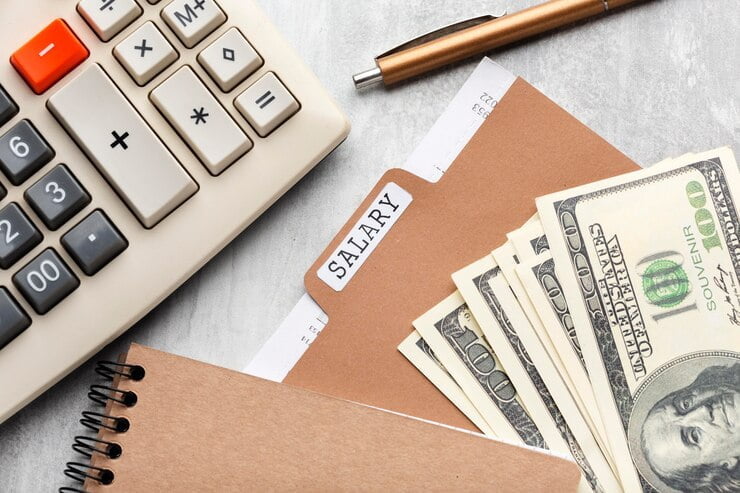What Is A Budget And 12 Tips On How To Create One
by Sumona Finance Published on: 13 September 2022 Last Updated on: 14 September 2022

Do you know what is a budget? A lot of people don’t actually know how to create a budget, which can be problematic when it comes time to pay the bills.
In the below post, Carrington Dean defines what a budget is and gives you 12 tips on how to create one that works for you. By helping hundreds of families start their debt-free journey, Carrington is an expert in everything from mortgages and debt arrangement schemes to student loans and council tax debt.
By following these tips, you can make sure that you always have enough money in your pocket to cover your expenses.
Let’s get started!
What Is A Budget?
When it comes to personal finance, a budget is an important tool that can help you keep track of your income and expenses. A budget can also help you make plans for how to save money and reach your financial goals and know what is a budget.
There are different ways to create a budget, but the basic idea is to track your income and expenses so that you can see where your money is going. You can then use this information to make adjustments to your spending so that you can save money or pay down debt.
Creating and sticking to a budget can be challenging, but it can be a helpful way to get control of your finances.

Not sure where to start? Check out the top tips below:
1. Start By Tracking Your Income And Expenses
If you’re looking to get your personal finances in order, one of the best things you can do is start tracking your income and expenses.
This will give you a good idea of where your money is going each month, and it can help you make better budgeting decisions. Your budget-making decisions also come under the definition of ‘what is a budget.
There are plenty of personal finance apps out there that can make tracking your income and expenses easy, so there’s really no excuse not to do it. Once you start tracking your finances, you may be surprised at how quickly your financial situation improves.
2. Make A Budget That Works For You
There’s no one-size-fits-all approach to budgeting, so it’s important to find a budgeting method that works for you.
If you’re not sure where to start, try looking for budgeting templates online or speaking to a financial advisor.
Once you have a budget in place, be sure to share your opinion on a regular basis and also make adjustments as needed.
3. Set Financial Goals
One of the best ways to stay motivated with budgeting is to set financial goals. Whether you’re looking to save for a down payment on a house or pay off your credit card debt, setting specific goals can help you stay on track.
Now you know what is a budget? What’s next? Makes sure your goals are realistic and achievable and be sure to set a time frame for each goal. This will help you budget more effectively and make better financial decisions.

4. Automate Your Savings
One of the flexible ways to save more money is to automate your savings. This means setting up a budget so that a certain amount of money is automatically transferred into your savings account each month.
This can help you reach your financial goals faster and make it easier to stick to your budget.
5. Cut Back On Unnecessary Expenses
A good way to save money is to cut back on unnecessary expenses. This may mean eliminating things like eating out, shopping for new clothes, or subscriptions that you don’t use.
It’s important to remember that you don’t have to cut out all of your fun expenses, but cutting back on some of them can help you free up money in your budget.
6. Find Ways To Save On Essential Expenses
Just because an expense is essential doesn’t mean it can’t be budget-friendly. There are plenty of ways to save on essential expenses like groceries, transportation, and housing. Many times people ask about what is a budget. One budgeting process is also.
For example, you may be able to save money on groceries by shopping at discount stores or using coupons. And you can save on transportation costs by taking public transportation or carpooling.

7. Make A Plan For Unexpected Expenses
No budget is perfect, and there will always be unexpected expenses. That’s why it’s important to have a plan for how you’ll handle these expenses when they come up.
One option is to create an emergency fund that you can use to cover unexpected costs. Another option is to build some wiggle room into your budget so that you have some extra money to work with when unexpected expenses come up.
8. Use Cash Instead Of Credit
One of the worst things you can do for your budget is to use credit instead of cash. This can quickly lead to debt and make it difficult to stick to your budget, even when you are starting with what is a budget.
If you’re tempted to use credit, try using cash instead. This will help you stay within your budget and avoid debt.
9. Avoid Making Anykind Of Impulse Purchases
Impulse purchases can quickly derail your budget, so it’s important to avoid them when possible.
Hence when you find yourself tempted to make an impulse purchase, take one step back and then ask yourself if you really need the item. If your answer is no, then walk away and save your money.

10. Stick To Your Budget
It’s important to remember that budgeting is not a one-time thing. In order to be successful with budgeting, you need to stick to your budget. This means being mindful of your spending, tracking your progress, and making adjustments as needed.
If you find yourself struggling to stick to your budget, don’t be afraid to seek out help from a financial advisor or budgeting coach.
11. Be Flexible With Your Budget
Remember that your budget is not set in stone. As your life changes, your budget should change with it.
Be sure to review your budget regularly and make adjustments as needed. This will help you stay on track and ensure that your budget is working for you.
12. Get Help If You Need It
Budgeting can be difficult, especially if you’re not used to it. If you find yourself struggling to create or stick to a budget, don’t be afraid to seek out help from a financial advisor or budgeting coach.
These professionals can offer guidance and support that can make budgeting easier. Even when you already know what is a budget. Help is always required.

In Conclusion:
Budgeting is a great way to save money and manage your finances. By following these budgeting tips, you can create a budget that works for you and helps you reach your financial goals. I think the points and the tips are clear to you, just starting with what is a budget. What is your opinion? What types of budget tips are you following?
Additionals:







































































































